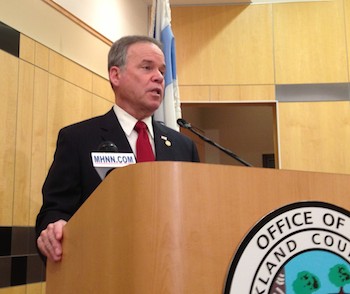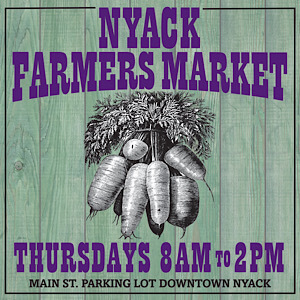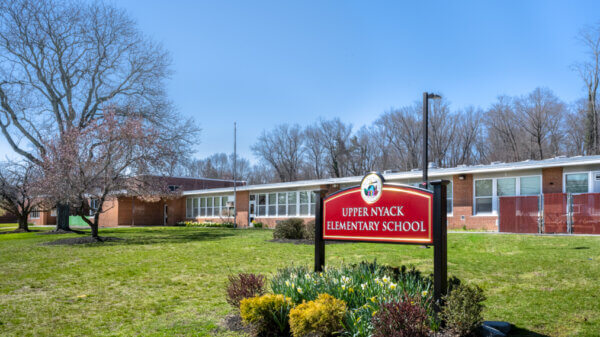A Nyack Millennial Describes the 5 Words That Were in Vogue in 2016
by Sam Schieren
“Words matter, my friends,” Hillary Clinton told a Des Moines, Iowa crowd on August 10th, 2016. “And if you are running to be president, or are president of the United States, words can have tremendous influence.” This after one of Donald Trump’s seemingly unforgettable yet oft forgotten unprecedenteds—suggesting “Second amendment people. . . . could do [something],” about Clinton’s potential Supreme Court choices.
For me, 2016 was a year in which words seemed more detached from their meanings than ever before in my lifetime. Vagueries erupted as social and political bombs, creating a national feeling that something must be done about something or else something terrible would befall someone, maybe even us. Who, what, when, and how seem to be left out of an equation that was full of answers for Why? (The Crooked Lying Cheating fill in the blank) and Where? (America, of course).
The following five words were at the front and center of the alarming 2016 American lexicon, and represent emotions, developments, and movements for which I believe this year will be remembered.
Matter
 What matters to Americans in 2016? What matters to the town of Nyack? To you? To me? The question begs more than ever.
What matters to Americans in 2016? What matters to the town of Nyack? To you? To me? The question begs more than ever.
On Wednesday, December 14th, County Executive Ed Day eliminated $1.3 million in funding for Rockland nonprofit and community organizations, which include Child Care Resources, Keep Rockland Beautiful, the NAACP, and the Historical Society of Rockland County, while simultaneously reinstating a 1.17% increase on the already high property tax. Kim Cross at the Nyack Center has started a Rockland Non-profits Matter to combat this veto.
Nationally, the sudden and developing conflict between Black people in America and police is a fiction that, like the 1992 revolt in Los Angeles following the public airing of Rodney King’s beating, is more a product of new technology bringing centuries-long discrimination to light than new discrimination developing.
And along this line, 2016 saw the development of a new face in the fight for civility and equality. Black Lives Matter, a nationwide movement, took up the public flag in the fight for rights of Black Americans. The backlash to the organization and its eponymous slogan has been tremendous. That the simple statement, “Black lives matter,” could be of any controversy is confounding, yet not surprising.
The word matter in this usage and that of non-profits matter can be defined as having significance or value. The $1.3 million stripped from the non-profits indicates a government as business mentality that values currency and bottom lines over human bodies. Further, apparently the fact that Black lives have significance is also cause for national debate. The response by the South Park-maligned online commentariat and the right-leaning punditry has been mostly snarky, phrased in the oh-so-clever form of “All lives matter.”
This sentiment, of course, is at the heart of the Black Lives Matter movement. All lives matter, all lives have significance, all lives “are created equal.” But this, the supposed slogan of our nation, is at odds with American Reality, most starkly proven by the fact that today one out of three Black men can expect to spend time in prison (versus approximately one out of 17 White men). It’s a fact that seems too conveniently in line with the great loophole of the 13th amendment—Neither slavery nor involuntary servitude, except as a punishment for crime whereof the party shall have been duly convicted, shall exist within the United States, or any place subject to their jurisdiction—to be coincidence. Black Lives Matter is a starting place; a simple request for the country to acknowledge that Black people’s experience has significance in this country, since so much of our criminal justice system seems to refute that basic assertion.
So mattering, the least emphatic of self-asserting declarations, finds itself in the midst of public consciousness, pulled on by two sides like the two women before Solomon. And now our President-elect seems all too ready to provide judgment. What matters to Trump is somewhat of a mystery (though clearly words do not). Most theories involve power, money and flattery. But Trump, soon to be sitting in Solomon’s seat able to define what matters to our nation, seems poised to try and resolve the above dispute—Do Black lives matter?—by simultaneously confirming the “All lives matter” camp’s ‘rightness,’ while dismantling the middle-class socio-economic architecture designed by past generations to keep the “All lives matter” camp from having to suffer from being equal to Black people.
Conspiracy

Donald Trump at a 2016 campaign rally. Photo: By Gage Skidmore via Wikimedia Commons, CC 2.0
I haven’t heard the word spoken so much as felt its cancerous effect. Like a good conspiracy, the ethos, the notion, the vibe of it has loomed in the background of so many of the events that make this year such an historical one.
To me, so much has been made to feel like a conspiracy that I find myself seeing it everywhere. Powerful actors with suspicious motives have been making backdoor deals with higher-ups in boardrooms to fulfill their villainous objectives. Does this previous sentence apply to the elite, the illuminati-esque class that was the object of disdain in our country’s greatest-yet populist backlash? In a lot of cases, yes; still, it reeks of fear mongering and unfounded conspiracy. The feeling behind the above statement is why Noam Chomsky’s and Alex Jones’s names might come up in the same sentence, even though one calmly states fact while the other screams lies.
Hillary Clinton, long accused of a discrepancy between her public versus private persona, became subject to the greatest trial in the court of public opinion in my lifetime. From the public outrage surrounding her email gaffe and her troubling international dealings as, simultaneously, a public official and orchestrator of The Clinton Foundation, she was morphed into the figurehead of a grand web of international intrigue that only Don Delillo could beat in inventiveness—a child sex ring in the nonexistent basement of a small ping-pong table laden pizza shop in D.C. being the latest most insidious development in her grand international scheming. #Pizzagatematters.
“The election is rigged,” Trump said. I don’t feel the need to cite the quote; I know he said it so many times. For months Trump took viral celebrity DJ Khaled’s self-help sentiments to heart—”They don’t want [me] to win.” Who “They” are was configured in the public consciousness as the establishment and the establishment most definitely supported Hillary Clinton. Trump framed these deep seeded powers and their entrenched media allies as hands manipulating the election in Clinton’s favor.
That this was one of the more truthful claims uttered by Trump—the establishment and the media were behind Clinton (as were a majority of Americans); and that the election in some sense was rigged—is besides the point. The notion of general conspiracy was the acid that ate away at Clinton’s base; it was what captured the public imagination. Conspiratorial claims, real and fake, draped over Clinton an unshakeable cloak of suspicion.
And now, with the election behind us, and Trump slated to take office, the herringbone plot line of this election has made even the most tangential occurrences seem suddenly meaningful, laden with dark purpose. I find myself questioning every controversial Trump tweet: What is this meant to conceal? I, and half a nation, seize crazily upon the significance of every insignificant coincidence looking for a line of facts to answer this: Why?
With every unresolved conspiracy, I feel like my mind is a battleground. What side do I fall on? Believe or don’t. The problem is that once you buy in, admit to conspiracy and pick a side, you become open to accusation—from the accusing side as a co-conspirator, from the accused side as a loon.
Yes, the CIA has said Russia interfered in the election, but the CIA (like Russia) has always been a key actor at the heart and soul of America’s fascination with conspiracy. And so the snake eats it’s own tail; or perhaps it’s mirrors facing mirrors; those who once conspired, accuse the accusers; and the accusers conspire to avoid accusation. Trump, who has seemingly cozied up to Putin’s Russia, takes advantage of the mess, forcing us to ask ourselves, Who can we believe?
One thing is for sure: It will make for four years of great television; perhaps this is why cable news networks aired all those Trump rallies. But no one’s saying conspiracy.
Tomorrow, the final three words in Sam Schieren’s Five Words that Defined 2016.








